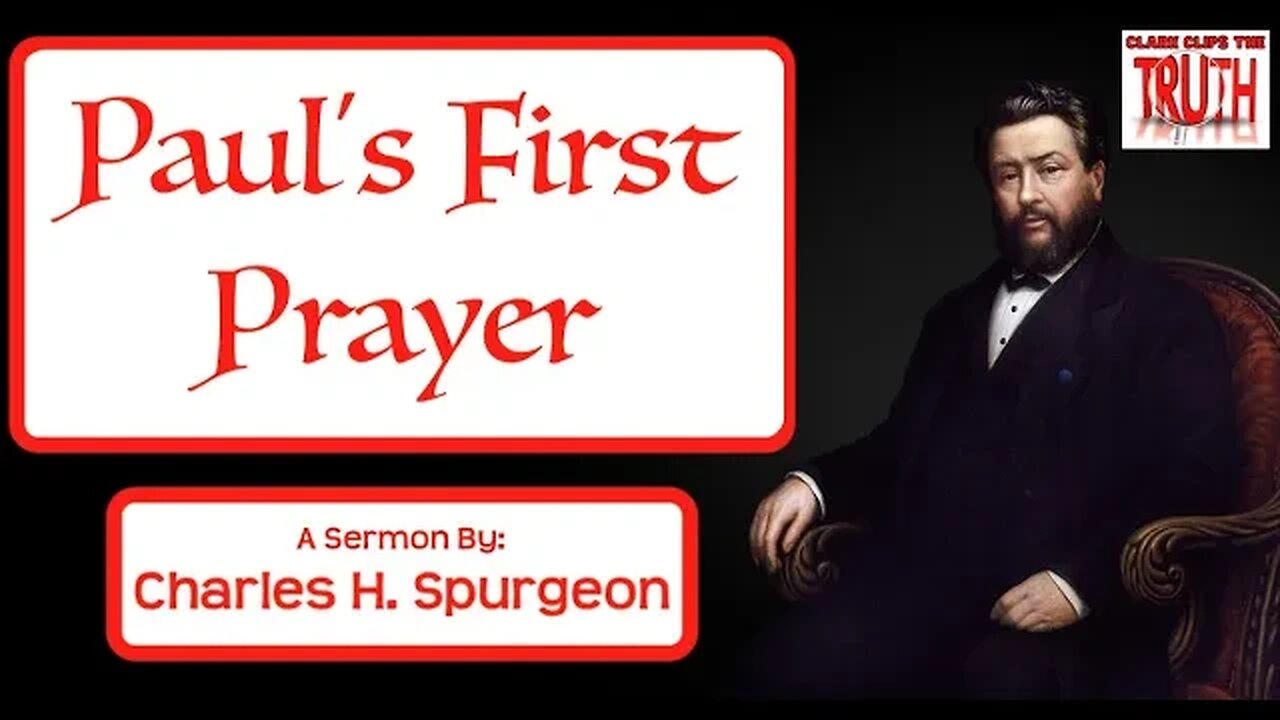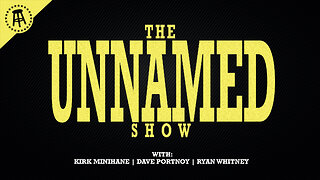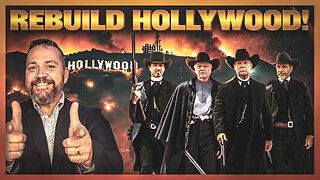Premium Only Content

Paul's First Prayer | Charles H Spurgeon Sermon
Paul's First Prayer | C H Spurgeon Sermons | Audio Sermon
Paul’s First Prayer
Charles Haddon Spurgeon March 25, 1855
Scripture: Acts 9:11
From: New Park Street Pulpit Volume 1
"For behold he prayeth"—Acts 9:11
God has many methods of quenching persecution. He will not suffer his church to be injured by its enemies, or overwhelmed by its foes; and he is not short of means for turning aside the way of the wicked, or of turning it upside down. In two ways he usually accomplishes his end; sometimes by the confusion of the persecutor, and at others in a more blessed manner, by his conversion. Sometimes, he confuses and confounds his enemies; he makes the diviner mad; he lets the man who comes against him be utterly destroyed, suffers him to drive on to his own destruction, and then at last turns round in triumphant derision upon the man who hoped to have said aha! aha! To the church of God. But at other times, as in this case, he converts the persecutor. Thus, he transforms the foe into a friend; he makes the man who was a warrior against the gospel a soldier for it. Out of darkness he bringeth forth light; out of the eater he getteth honey; yea, out of stony hearts he raiseth up children unto Abraham. Such was the case with Saul. A more furious bigot it is impossible to conceive. He had been bespattered with the blood of Stephen, when they stoned him to death; so officious was he in his cruelty, that the men left their clothes in the charge of a young man named Saul. Living at Jerusalem, in the college of Gamaliel, he constantly came in contact with the disciples of the Man of Nazareth; he laughed at them, he reviled them as they passed along the street; he procured enactments against them, and put them to death; and now, as a crowning point, this were-wolf, having tasted blood, becomes exceeding mad, determines to go to Damascus, that he may glut himself with the gore of men and women; that he may bind the Christians, and bring them to Jerusalem, there to suffer what he considered to be a just punishment for their heresy, and departure from their ancient religion. But oh, how marvelous was the power of God! Jesus stays this man in his mad career; just as with his lance in rest he was dashing against Christ. Christ met him, unhorsed him, threw him on the ground, and questioned him, "Saul, Saul, why persecutest thou me?"
#SpurgeonSermon #Spurgeon #Puritan
********************************************************
Please Note: Whenever possible, please support the original content creator before supporting me. With that said, if you find value in the small service that I provide (i.e., searching out the Truth and directing my audience to phenomenal content and channels) and if you feel led...
Please Help Support "Clark Clips the Truth" Ministry:
Like. Share. Comment. Subscribe. Pray.
Venmo: https://www.venmo.com/u/ClarkClips
Patreon: https://www.patreon.com/clarkclips
Thank you so much and may God Bless You Abundantly!
********************************************************
Also, Please Support the Creator of This Audio Recording, "Koelsch Broadcasting Productions." Thanks and God Bless!
Source:
Prince of Preachers
Phone: (864) 404-1542
Koelsch Broadcasting Productions
5 Scottswood Rd.
Greenville, SC 29615
https://www.sermonaudio.com/solo/pop/sermons/3501111340/
CONTACT: https://www.sermonaudio.com/solo/pop/contact/
ABOUT:
We are a radio broadcast located in Koelsch Broadcasting Productions.
Charles Haddon Spurgeon (1834-92) was England's best-known preacher for most of the second half of the nineteenth century. In 1854, just four years after his conversion, Spurgeon, then only 20, became pastor of London's famed New Park Street Church (formerly pastored by the famous Baptist theologian John Gill). The congregation quickly outgrew their building, moved to Exeter Hall, then to Surrey Music Hall. In these venues Spurgeon frequently preached to audiences numbering more than 10,000—all in the days before electronic amplification. In 1861 the congregation moved permanently to the new Metropolitan Tabernacle.
-
 34:28
34:28
Tudor Dixon
3 hours agoHypocrisy and Accountability in Politics with Sen. Markwayne Mullin | The Tudor Dixon Podcast
1.08K3 -
 LIVE
LIVE
The Shannon Joy Show
4 hours ago🔥🔥Live EXCLUSIVE With Edward Dowd: Trump CANNOT Stop The Worldwide Economic Collapse🔥🔥
735 watching -
 1:03:32
1:03:32
The Dan Bongino Show
4 hours agoTrump Joins The Show To Drop Massive Truth Bombs (Ep. 2403) - 01/17/2025
483K1.23K -
 LIVE
LIVE
Right Side Broadcasting Network
4 days agoLIVE: RSBN Pre-Inauguration Coverage: Day Two Live from Washington D.C. - 1/17/25
3,291 watching -
 21:42
21:42
The Rubin Report
2 hours ago‘Piers Morgan’ Panelists' Jaws Drop as Liberal’s Entire Narrative Obliterated w/ One Question
44.4K30 -
 1:37:57
1:37:57
Steven Crowder
4 hours agoMAGA: T-Minus Three Days | Everything We Want President Trump to do on Day One
227K95 -
 1:14:04
1:14:04
Dave Portnoy
20 hours agoThe Unnamed Show With Dave Portnoy, Kirk Minihane, Ryan Whitney - Episode 42
48.5K5 -
 2:01:29
2:01:29
LFA TV
18 hours agoREBUILD PEDOWOOD! | LIVE FROM AMERICA 1.17.25 11am
30.4K9 -
 1:37:55
1:37:55
Caleb Hammer
19 hours agoI've Never Hated A More Vile Piece of Trash | Financial Audit
20.7K -
 3:39:42
3:39:42
Benny Johnson
5 hours ago🚨 Trump Shuts DOWN The Border LIVE Right Now | Kristi Noem Confirmation Hearing For DHS, Deport!
123K190